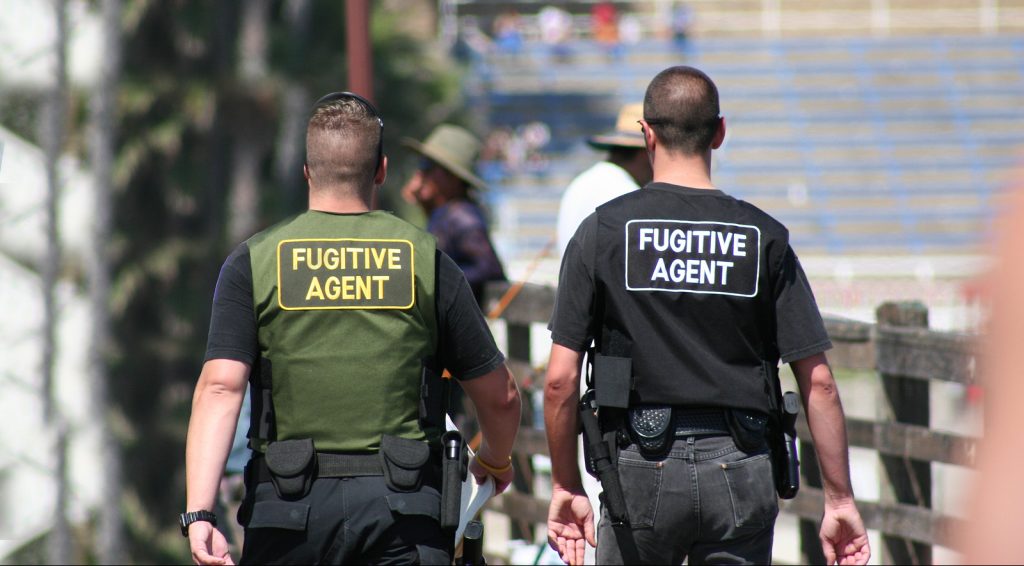Missing a court date or facing legal trouble can be an overwhelming and confusing experience. The term “fugitive of the law” often carries serious implications, but many people don’t fully understand what it means or how to address the situation.
This blog dives deeply into the concept of a “fugitive of the law” in the United States, unpacking the definition, legal implications, and potential consequences. We’ll also provide actionable guidance for resolving fugitive status, including the role of bail bonds, ensuring you are informed about your rights and options.
By the end, you will have a clearer understanding of this issue and practical steps to take if you or someone you know is facing fugitive status.

What Is a Fugitive of the Law?
The term “fugitive of the law” refers to an individual who actively avoids detention, prosecution, or legal obligations. Under 18 U.S. Code § 1073, a fugitive is defined as someone who has fled from one state to another to avoid prosecution or testifying.
More specifically, a person becomes a fugitive when they:
- Miss a scheduled court date (commonly known as “failure to appear”).
- Skip bond after being released on bail.
- Evade arrest for criminal charges.
- Flee the jurisdiction to avoid legal responsibilities.
The legal designation of a fugitive entails serious consequences, often increasing penalties and escalating legal complexity.
Legal Implications of Being a Fugitive
Becoming a fugitive has profound legal implications. The justice system treats individuals who flee legal obligations with significant seriousness. For instance:
- Warrants are typically issued for failure to appear (FTA), which can be a criminal offense depending on your state laws.
- State lines offer little refuge due to the widespread use of extradition agreements. If arrested in another state, a fugitive can be returned to the state where the legal issues originated.
- For those who leave the United States, extradition treaties between countries could result in being forced back to face legal proceedings.
Acts such as bail jumping or fleeing to avoid prosecution directly conflict with statutes like 18 U.S. Code § 1073, which treats such actions as federal offenses.
What Actions Can Lead to Fugitive Status?
A range of actions can lead you to be classified as a fugitive of the law. Some of the most common triggers include:
- Failure to appear in court: Whether intentional or due to oversight, missing a court date for a criminal charge often results in an FTA warrant.
- Skipping bond: Failing to meet your bail conditions or absconding after being released on bail directly violates agreements with the court and bail bond provider.
- Evading arrest: Avoiding law enforcement after a warrant has been issued compounds your legal troubles significantly.
- Leaving a jurisdiction to avoid prosecution or questioning in a legal case.
For instance, if someone skips a court date related to a DUI charge and flees their state, they are likely to have both state and federal warrants filed against them.
Contact an Indiana Bail Bondsman Now
The Consequences of Being a Fugitive
When someone becomes a fugitive, the consequences can escalate quickly, impacting their legal standing, financial situation, and personal freedoms. Common penalties include:
- Enhanced Charges: Fleeing adds additional charges, such as failure to appear or bail jumping.
- Higher Fines and Legal Fees: Courts often impose hefty fines for missing court dates or evading authorities.
- Loss of Bail: If you skipped bond, your bail amount is forfeited, placing financial strain on you (or whoever may have posted the bail).
- Extradition: Crossing state or national borders to avoid prosecution triggers extradition, bringing you back to the jurisdiction where you’re wanted.
These consequences can snowball, making it critical to address fugitive status promptly.
How to Resolve Fugitive Status
If you or a loved one has become a fugitive of the law, proactive steps can help mitigate further complications. Here’s how to begin:
1. Consult with a Legal Professional
One of the first things you should do is consult with an experienced criminal defense attorney. They can provide guidance on navigating your situation, handling outstanding warrants, and understanding possible outcomes.
2. Voluntarily Surrender
Voluntarily surrendering to authorities or the court can demonstrate cooperation and potentially lead to reduced consequences.
3. Clear the FTA Warrant
If your fugitive status originates from failure to appear, you’ll need to work with your attorney to clear the warrant. Explaining legitimate reasons for missing your court date, such as illness or emergencies, might soften penalties.
4. Explore Bail Bond Options
If bail is required for your release, a reliable bail bond service can provide financial assistance. This is especially helpful if the bail amount is significant and out of reach. Keep in mind:
- Bail bonds typically cost a nonrefundable premium (10%-15% of the bail amount).
- Bond agents may require collateral or a cosigner for high bail amounts.
- Fulfilling all bail conditions is critical; skipping bond worsens your situation significantly.
How Bail Bonds Can Help
Bail bond services play an essential role in ensuring individuals don’t become or remain fugitives. Here’s how:
- Financial Accessibility: Bail bond companies cover the bail cost when you can’t afford it upfront.
- Efficient Process: Experienced bail bond providers streamline the process, making release from custody quicker.
- Support in Skipped Bond Cases: If you skipped bond, bond agents may assist in returning you to court to address your status.
Always work with reputable bail bond providers. They not only manage the financial side but also ensure you comply with court orders, minimizing further repercussions.
Taking Positive Steps Forward
Facing fugitive status is a serious matter, but it’s not insurmountable. Acting quickly to resolve warrants, consulting legal professionals, and using resources like bail bonds can help you regain control of your situation.
If you’re currently dealing with fugitive status or supporting a loved one who is, start by reaching out to an experienced attorney for guidance. Explore bail bond services to assist with financial obstacles, and take the first step toward resolving your legal challenges today.
Looking for immediate help with getting out of jail? Need to surrender to a warrant? Let us help. Contact Woods Bail Bonds at 317-876-9600 for 24 hour assistance. We provide bail assistance in over 30 Indiana counties. Together, we’ll work to bring your loved one home.
Get an Instant Bail Bond Quote
Related Post: How To Find Inmate’s Location and Other Information in Indiana














